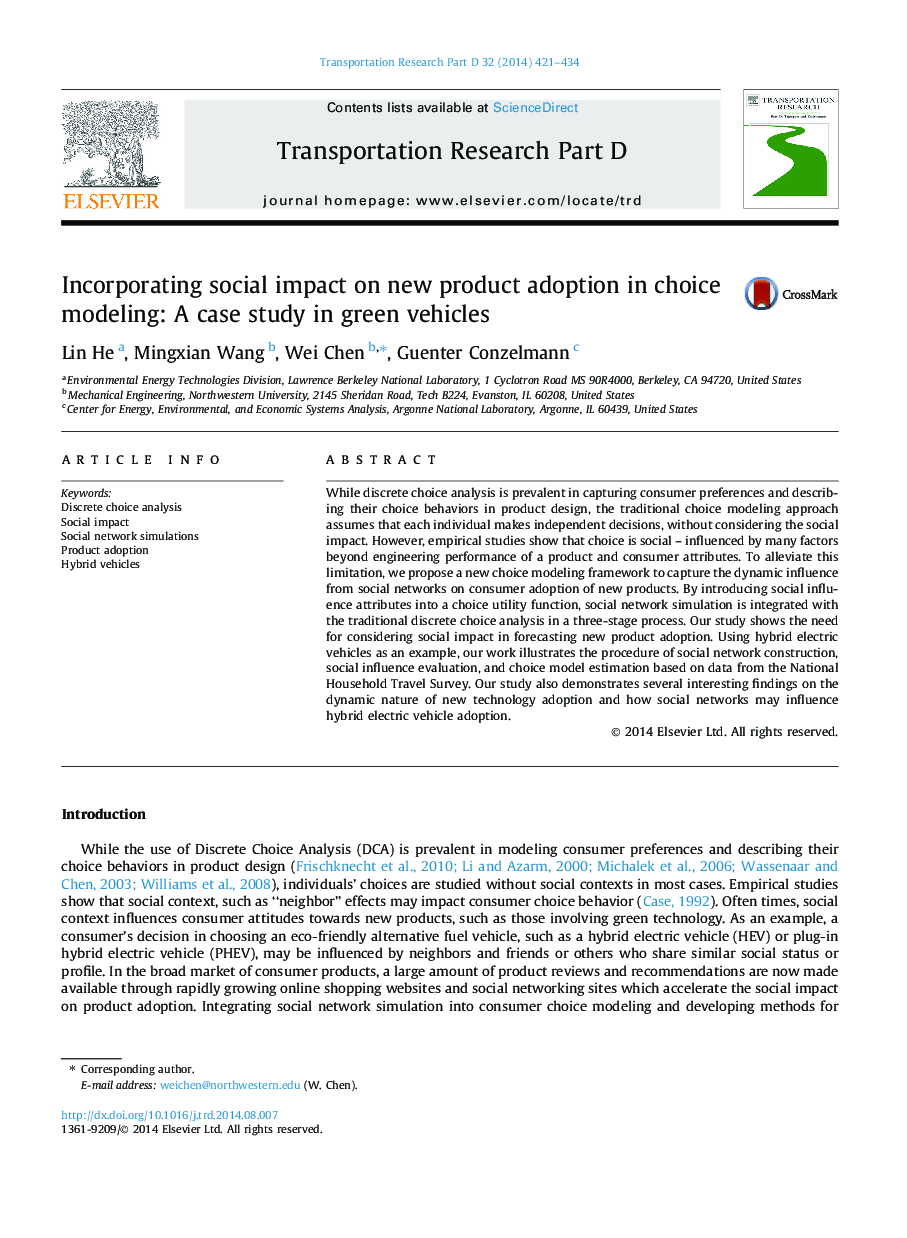| Article ID | Journal | Published Year | Pages | File Type |
|---|---|---|---|---|
| 7500995 | Transportation Research Part D: Transport and Environment | 2014 | 14 Pages |
Abstract
While discrete choice analysis is prevalent in capturing consumer preferences and describing their choice behaviors in product design, the traditional choice modeling approach assumes that each individual makes independent decisions, without considering the social impact. However, empirical studies show that choice is social - influenced by many factors beyond engineering performance of a product and consumer attributes. To alleviate this limitation, we propose a new choice modeling framework to capture the dynamic influence from social networks on consumer adoption of new products. By introducing social influence attributes into a choice utility function, social network simulation is integrated with the traditional discrete choice analysis in a three-stage process. Our study shows the need for considering social impact in forecasting new product adoption. Using hybrid electric vehicles as an example, our work illustrates the procedure of social network construction, social influence evaluation, and choice model estimation based on data from the National Household Travel Survey. Our study also demonstrates several interesting findings on the dynamic nature of new technology adoption and how social networks may influence hybrid electric vehicle adoption.
Related Topics
Life Sciences
Environmental Science
Environmental Science (General)
Authors
Lin He, Mingxian Wang, Wei Chen, Guenter Conzelmann,
